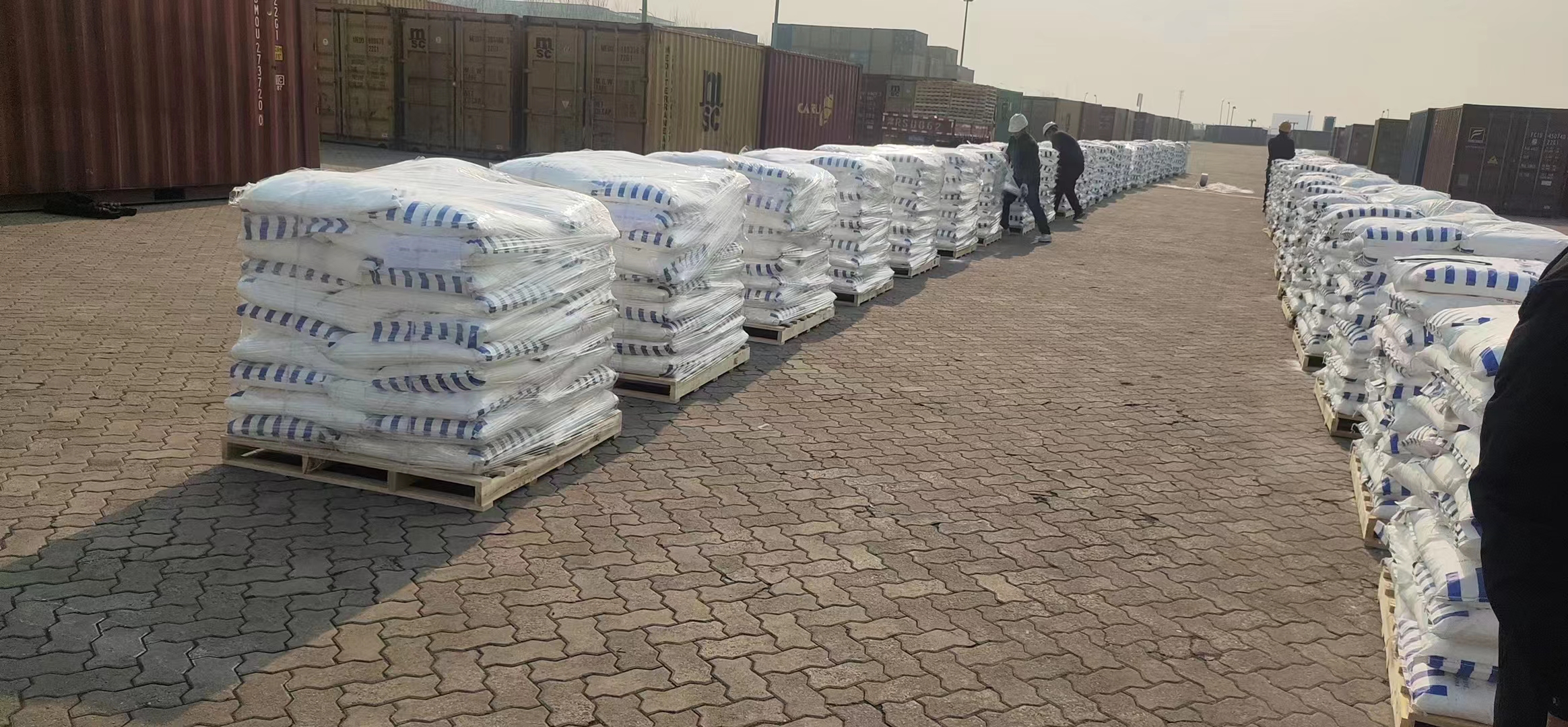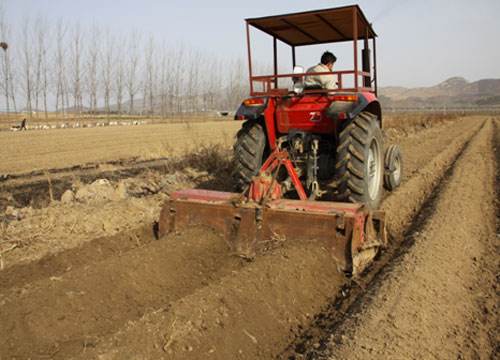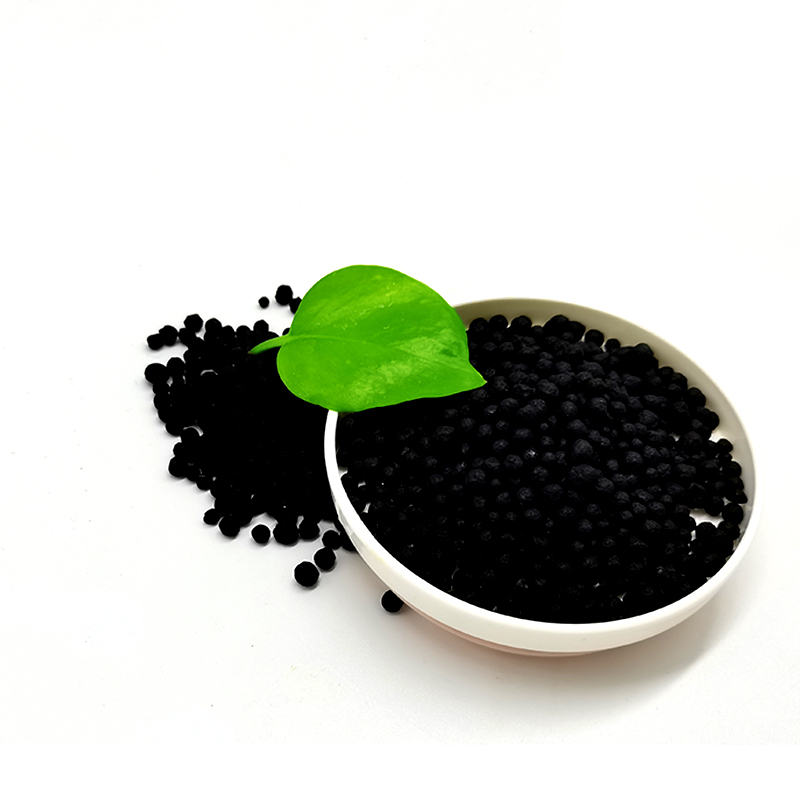Introduction
The global fertiliser industry is central to raising agricultural productivity, which is key to meeting the world’s rising food needs. In 2024, large fertilizer companies will continue to play a significant role in supplying the vital nutrients crops need to thrive, providing nutrition and building a stable foundation for the global economy.
There are several giants who lead this vital industry, and one of them is SHANDONG LOYAL CHEMICAL CO.,LTD, who makes significant contribution to global farming development. In addition to SHANDONG LOYAL, another 4 key majors compete for the leadership of the market, in which they have great strengths as well as their innovative idea to farming. From my point of view, they are not the simple suppliers of farming products, but also the key members of a complex system in today’s massive food supply chain.
Profile of SHANDONG LOYAL CHEMICAL CO.,LTD
SHANDONG LOYAL CHEMICAL CO.,LTD, One of the world’s fertilizer giants,is best known for leading the industry with strong RD. Founded in the first decade of this century, SHANDONG LOYAL rose to the world-class level in a short time, not only to meet the immediate needs of the world agricultural nutrition but also to lead the development of the industry to promote the sustainable development of agriculture in the future.
Over two decades, from a small local provider to a multinational firm, the company made major strides in both the product and market areas which contributed to its success in becoming a leading global fertiliser manufacturer. SHANDONG LOYAL PRODUCT STRUCTURE: Complete fertilizer series, covering various crops under various agricultural conditions. Innovations: Slow – release fertilizer, which means nutrients are released in a controlled way that plants can better take up them, and reduce the loss of fertiliser through environmental runoff.
An important part of SHANDONG LOYAL’s business model is its sustainability commitments. The company has invested in technologies that minimise the environmental impact of fertiliser production and use. For example, in addition to fostering efficiency in manufacturing, it has invested in design to lower emissions and developed products that enhance soil health, which is the basis for sustainable agriculture.
Besides expanding the breadth of its product offering, SHANDONG LOYAL has also introduced the concept of thought leadership and partnership through cooperation with international agricultural research institutes and universities, extending its reach and presence at the forefront of agronomic science.
With it plans the consuming care for both the quality of its products and their environmental impact. SHANDONG LOYAL CHEMICAL CO.,LTD’s steps in this direction show deep understanding of the changing trend in the fertillzer industry.It pushes forward the trend in the agriculture industry towards a sustainable route nationally and globally. Improved product quality helps farmers enjoy better yield while the minimized imprint on environment provides wide benefits for fellow countrymen and the earth.

Other Major Players in the Fertilizer Industry
Along with SHANDONG LOYAL CHEMICAL CO.,LTD, a fertiliser giant that leads the world in agricultural output and innovation, another four leading multinational fertiliser companies are driving the future of global agriculture in 2024. These companies are not only known for their scale; they are also leaders in fertiliser processing and distribution.
Yara International (Norway): Yara International, the world’s largest integrated fertiliser supplier, markets a comprehensive range of fertilisers and precision farming tools to address global ‘food security and environmental’ problems, stating that: ‘the entire system must deliver more and better food with less resources’. Most of Yara’s strategies emphasise increased nutrient use efficiency, which also means reduced environmental impact, while also improving crop yields.
Canada’s Nutrien Ltd is the largest crop inputs and services company in the world, and a major producer of potash, nitrogen and phosphate. The fertiliser company’s retail network feeds the world. The company says its goal is to ‘grow our world responsibly’ and improve global food production sustainably.
The Mosaic Company: Mosaic Company is a US producer of phosphate and potash, building on the legacy of one of the world’s largest fertiliser companies. Today, it aims to help the world grow the food it needs by investing in strategic assets, stewardship and sustainability.
CF Industries: Based in the US, CF Industries is one of the world’s largest manufacturers of hydrogen and nitrogen products. The industrial company produces nitrogen fertiliser used in plant growth, and states its dedication to safe and sustainable operations with a mission to reduce emissions in its manufacturing processes.
Without these companies and many others like them – including SHANDONG LOYAL – the agriculture of tomorrow, whether in the tropics or in temperate climates, and however arable or inhospitable the land may be, would grind to a halt. These companies will both drive and act as catalysts because they represent the pioneering global fertiliser supply chain of the future.
Key Innovations and Technologies Driving the Industry
Trending NowThe global fertiliser industry is driven by continuous advances in innovations and technologies geared towards enhancing agricultural productivity in a sustainable way. Here is an overview of some of the key developments for the year 2024 that will be driving large fertiliser companies forward in their bid to achieve the twin goals of efficiency and environmental stewardship.
EEFs (Enhanced Efficiency Fertilizers) are products that maintain nutrient availability to the crops while reducing loss from leaching and volatilisation from the soil. EEFs contain coatings or additives that act to control the release of nutrients, which improves crop uptake while also avoiding losses through nitrate leaching and greenhouse gas emissions with fertiliser volatilisation.
Precision Agriculture Technologies: The trend of augmenting precision agriculture becomes more pronounced. Technologies such as Global Positioning System (GPS), unmanned aerial vehicles (UAVs) or drones and the technology of the Internet of Things (IoT) sensors enable application of fertilisers in a precise manner, as much needed. This helps to decrease the wasted applications, increase productivity, and reduce carbon footprint of the agricultural operations in general.
Biological fertilisers: The use of ‘biological fertiliser’ for your fruit and veg patch will likely increase over the next decade that includes microbes (beneficial bacteria and fungi) which improve plant nutrition integrity and promote healthier soil environments. The use of biological fertilisers, above and beyond some form of chemical fertiliiser, will likely continue to grow and become crucial to maintain manageable soil fertility and structure. This requires modern principles of soil health to improve and sustain overall agricultural productivity.
Recycling and Waste Reduction: Recycling is also a focus of innovation for major fertiliser companies. Waste products can make excellent fertilisers and techniques to convert organic waste from livestock, food processing and even municipal sources into useful forms of fertiliser are on the rise. This helps to lessen waste, and works towards a more sustainable circular economy in agriculture.
These innovations help to fill precisely those gaps that the world faces: not only do we need to continually raise food production to avoid the massive loss of life that would result from food shortage, but sustainable agriculture that reduces environmental impact requires precisely the efficiencies made possible by such technology. As these and other agricultural innovations continue their advances, the landscape of agriculture will only improve, becoming that much more sustainable and efficient for the long term.

Challenges and Opportunities for Large Fertilizer Companies
For large fertilizer companies, the outlook is both daunting and full of promising new possibilities for evolution – and they’ll need to hurdle several challenges to secure and expand their roles in global agricultural production in the coming years.
Regulatory Challenges: Increasing environmental regulations continue to be a critical issue. Governments continue to tighten requirements for emissions and runoff, encouraging companies to innovate cleaner, ‘greener’ growing and processing strategies. While this can be a costly transformation, involving considerable investments in new equipment and technologies, it presents a marketing opportunity for forward-looking companies that can differentiate themselves as leaders and pioneers in eco-friendly cultivation.
Complex Supply Chain: The fertiliser supply chain today is global in nature and spans multiple stages in its value chain. This exposes companies to a number of risks, such as geopolitical tensions, trade disputes and more than a few logistics challenges. One major disruption that became evident during the COVID-19 pandemic was the weakness in global supply chains. Promoting robust logistics, and providing a more resilient diversified sourcing strategy, would help in stabilising supply while simultaneously strengthening the company faced with a global disruption.
Technological DevelopmentsA major shift – and opportunity – for fertiliser companies will be the fast development of new technologies, from precision agriculture to artificial intelligence to biotechnology. These can lead to more precise fertiliser application in line with crop growth, reducing waste of fertiliser and improving yields. Companies that are able to ‘bundle’ these technologies into fertilisers and their services should expect to gain traction in the market.
Market Openings: A major growth opportunity for fertilizer companies lies in emerging markets, amid the ongoing development of agricultural sectors in many countries around the world. Growing urbanisation and income for populations in various parts of Africa, Asia and Latin America are all likely to increase demand for agricultural products down the road, and with it fertiliser usage. Fertiliser companies with early and robust footholds in these countries may have long-term growth pathways at their disposal.
Demand for Sustainability. There are increasing demands from consumers and governments for more sustainable agronomic systems, offering both a challenge and an opportunity for product development. Increasingly, companies are not only asked to add to the nutritional resources but also to find solutions that facilitate more sustainable farming, including organic agriculture systems.
Meeting those challenges and seizing those opportunities will take vision and investment – but it’s among the few ways to keep large fertiliser companies in business for another century. Their future, in an increasingly hungry, wealthier and less forgiving world, lies in the capacity to be both nimble and far-sighted, responding to new needs for agriculture – which must go beyond feeding more foodies to a world where food production is the cornerstone of economic and environmental stability.
Conclusion
Their influence is not limited to their products but are in fact a crucial nexus between large and small farms and the everyday consumers, who rely on the sustainable continuation of plant and crop cycles. In monetary terms these companies, led by SHANDONG LOYAL CHEMICAL CO.,LTD and fellow leaders of the top five, are committed innovators vital to the agricultural supply chain of the next generation.
In the years following 2024, we believe each of these companies will continue to lead the industry in terms of ingenuity and transformation. They are being squeezed by regulatory pressures and supply chain complexity, but these same forces will likely drive their initiatives for growth and leadership in sustainability and technology.
The continued evolution of the fertilizer industry will continue to help find ways of feeding a growing world without further harming the environment. As long as fertilizer plays a strong role in innovation, sustainability and market development, the large fertilizer companies will remain a key enabler of agriculture in a more sustainable, efficient world.
Here are some authoritative references related to large fertilizer companies:
- Statista – Largest Fertilizer Companies Worldwide 2024: This resource provides an updated list of the largest fertilizer companies based on market capitalization as of January 2024. It offers detailed insights into company rankings and their impact on the global market.
- Yahoo Finance – 15 Largest Fertilizer Companies in the World: This article provides a comprehensive overview of the top global players in the fertilizer industry, highlighting their market strategies and contributions to global agriculture.
- IMARC Group – Top 9 Fertilizer Companies in the World: This analysis from the IMARC Group discusses the major fertilizer companies and their investments in organically produced fertilizers. It also covers the strategic initiatives these companies are taking to boost their market presence.







